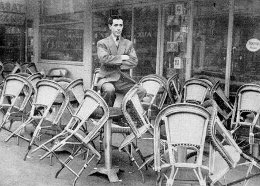From the New York Times (excerpts):
Georgia.
Tax on Labor — Hostility to Union Men…
Correspondence of the New-York Times.
Savannah, Ga., . This city has been a scene of much excitement during , growing out of an act of the City Council imposing a tax of $10 per capita on the stevedores and other laborers on the wharves here, and requiring them to wear a badge, which the city furnished upon receipt of the tax. The laborers all — white and black — persistently refused to pay a tax regarded by them so exorbitant and unjust; in consequence of which the Mayor ordered the Police to prevent all from working who had not paid the tax.
This, of course, seriously interfered with the shipping interests of the city, and the Council, finding that the laborers were not at all disposed to yield, and that meanwhile the “strike” was damaging the business community to the amount of thousands of dollars, and was driving all the vessels from this to other ports, met and reduced the tax to $3. This, however, only tended to increase the feelings of the laborers, who had resolved not to pay any tax whatever, deeming it unjust, unconstitutional and oppressive to tax unskilled labor, and they determined that none of their number should work, whether they paid the tax or not.
This made it necessary for the police to protect those who had yielded and paid the tax from the assaults of their incorrigible brethren; and Bay-street presented, , a very crowded and active appearance. I was in the crowd from the time the police appeared until they and the crowd disappeared, and failed to see any act indicating violence, or justifying the arrest of any one. The police, however, arrested several negroes, whom they treated in the most brutal and barbarous manner — beating them over the head so severely as to cause the blood to flow profusely. No attempts were made to arrest any of the white men, although they were the parties who inaugurated and controlled the strike from beginning to end.
A vast deal was said during the excitement about the d—d “Yankees” and “niggers;” and, from all I could learn, was induced to believe that the one is held in as high esteem by the rebels as the other.


